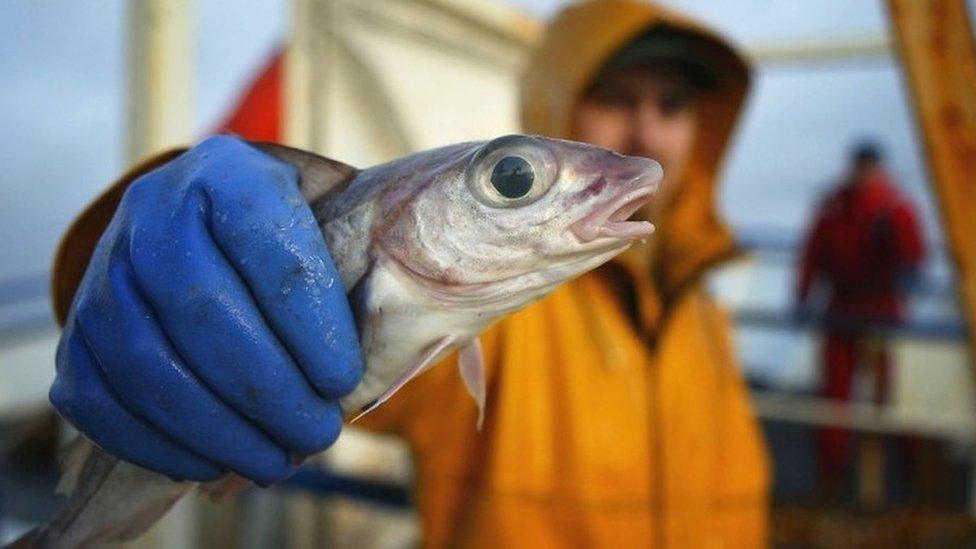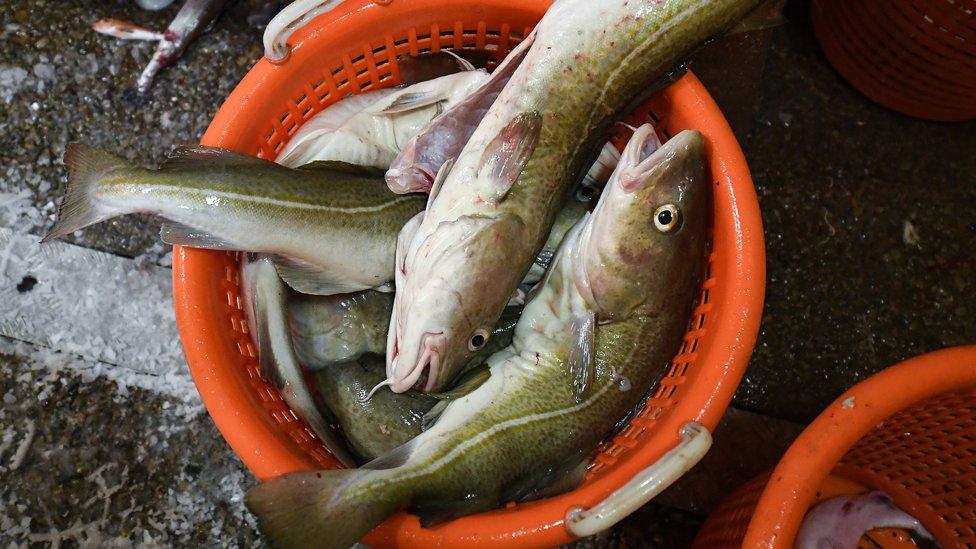Brexit: Republic of Ireland to lose 15% of fishing quota
- Published

EU countries agreed to return some of the fish they take from UK waters
The fishing fleet in the Republic of Ireland will be one of the worst affected by the handback of quota under the UK/EU trade deal.
EU countries agreed to return some of the fish they take from UK waters.
Figures produced by the authorities in Dublin show they will lose 15% of their quota, worth around €43m (£38m).
In total EU fishing nations like Spain, France, Ireland, Germany, Denmark, the Netherlands and Belgium will return fish worth almost €199m (£175m).
France is the biggest loser in monetary terms, sacrificing €52m (£46m) worth of fish but as its quota of shared stocks is the biggest of the EU members, it is less of a hit in percentage terms.
Together with the Republic of Ireland, Germany are the biggest losers in percentage terms at 15%, the Netherlands is next at 10% and France at 8%.
The UK/EU negotiations on quotas centred on more than 100 stocks, with EU quota being surrendered in about 60% of them.
The fish are being handed back over a five-year transition period to 2026, but the biggest cuts will happen in the first few years.
The biggest reduction for the Republic's fleet is in mackerel where it will have handed back almost €27m (£24m) worth by 2026, almost a quarter of its traditional share.
The other big reduction is in its quota for prawns in what is known as Area 7 which includes the Irish Sea.
It will lose €8m (£7m) worth of them by 2026 - 14% of its current catch.
A further €700,000 (£622,500) worth of Irish Sea herring quota will also revert to the UK.
Fishing organisations in the UK have said they were disappointed by the deal and had hoped for more fish to be returned.
There will now be a discussion at UK level to decide how the additional quota will be divided up among the Scottish, Welsh, English and Northern Ireland fleets.
Northern Ireland representatives have demanded a fair share of the additional fish when that carve-up is decided.
Related topics
- Published1 January 2021

- Published5 January 2021
